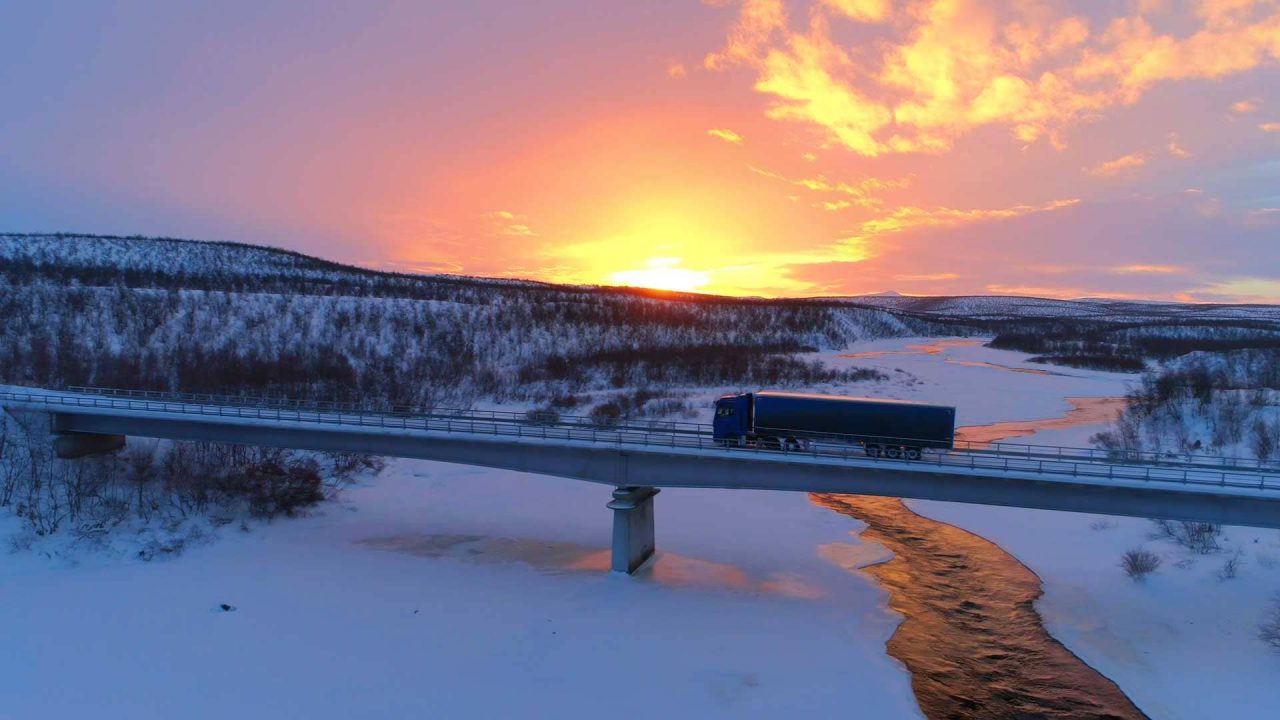Crossing the fjords of Norway by highway, with their steep mountains and deep inlets, is a test for human engineering prowess. The country is challenging nature’s rule by creating a new freeway that meets transport needs while being both modern and sustainable.
Work on the construction of the E39 – the highway everyone calls “the fjord freeway” – took a step forward in June, when the Norwegian Public Roads Administration (NPRA) called for between 20 and 25 tenders to assign a new part of this ambitious project.
Specifically, the work will link the city of Molde, located right next to a fjord, with the port city of Ålesund, both on the west coast of Norway. The geological characteristics of the area are particularly complex, and several bridges, tunnels, an underwater tunnel and of course a four-lane road must be built to complete the cross-country link.
The goal of these improvements to the E39 is to make it easier for vehicles to cross the fjords, eliminating the need for ferries. Crossings will be made by bridge and underwater tunnel. This is a highly complex project, given the road’s total length (1,330 kilometers, or 826 miles) and the characteristics of the territory. The NPRA, the national body in charge of managing the country’s road network, would like to be able to complete it by 2030.
But the reconstruction of the fjord highway, although it represents a flagship among Norwegian infrastructure projects, is just one of the many projects that the country’s government has approved in recent years. For 2021 alone, in fact, Norway has budgeted €7.8 billion ($9 billion) for the improvement of the transport network, a figure that demonstrates the country’s commitment to the development of its infrastructure.
E39, the fjord freeway
Along the Norwegian coast, new construction sites are opening every day, tackling what many see as the most significant engineering challenges of recent years: the construction of the fjord freeway.
According to the calculations of the NPRA, the entire project is expected to cost about €40 billion ($46 billion).
The new link is a great improvement over the old E39, where vehicles must board ferries seven times to cross as many fjords. An upgrade for this transit route is strategic for Norway’s mobility, considering that the road connects 6 regions where about 1.8 million people reside and alone is responsible for 7% of Norway’s car traffic. Modernising the old infrastructure will have an enormous impact on national transport: the time required to complete the entire route will be reduced from the current 21 hours to 10 hours, while the average cost of transporting goods from one end to the other will fall by half.

Webuild for the modernisation of Norway’s road network
Many Norwegian regions are now embarking on projects to upgrade their infrastructure. Among them is the western county of Vestland on North Sea, which is marked by deep fjords and includes some well-known municipalities such as Bergen.
Here the Sotra Link consortium, which includes Webuild Group, has been commissioned to build and manage an extensive road and bridge system for a contract value of €1 billion ($1.1 billion). The project, called “RV.555 Sotra Connection PPP Project,” has been commissioned by the NPRA and includes the construction of roads, tunnels, bridges and viaducts. Overall, the project involves building a road system that includes 9.4 kilometres (5.8 miles) of highways and a suspension bridge between Øygarden and Bergen that will be 900 metres (2,952 feet) long, 30 meters (98 feet) wide and equipped with 144-metre-high (472-foot) pylons. In addition, the project includes the construction of 12.5 kilometres (7.7 miles) of tunnels, 19 road and pedestrian underpasses, 23 tunnel accesses, 22 bridges and viaducts and 14 kilometres (8.6 miles) of pedestrian and bicycle paths.
Sustainability is at the heart of the project supported by NPRA and coincides with the “green” development strategies of Webuild Group.
“Norway is a market of strategic value for the Group,” said Pietro Salini, CEO of Webuild. “We have been in Norway for over 15 years and we have seen that values that are part of the Group’s DNA such as innovation, sustainability and inclusion are fundamental elements for the country that hosts us. This sharing of values, together with the emphasis that the Norwegian government is giving to investments in infrastructure and digitalisation, leads us to see Norway as an ideal partner.”
In addition to the East Coast, the NPRA has also launched road redevelopment projects in the West and Southwest regions of the state. These include the construction of the E18 highway, another major work in the National Transport Plan 2018-2029 approved by the country’s government.
In this case, the project will be divided into two steps: the section between Ramstadsletta and Nesbru to be completed in 2023, and between Lysaker and Ramstadsletta, will be inaugurated in 2028. All long-term projects that show how Norway has chosen to embrace a vision of the future built on modern, efficient and sustainable infrastructure.


